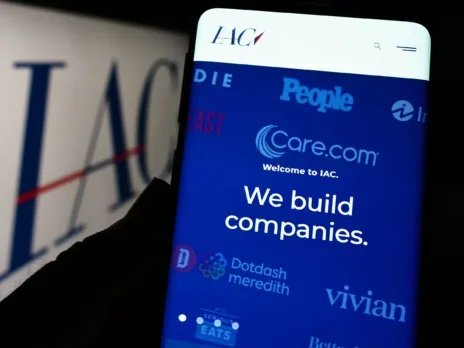
Reporters hired under a BBC-funded scheme to fill the gaps in news coverage of local authorities arising from newspaper cuts and closures have spoken candidly to Press Gazette about their experiences.
The local democracy reporters scheme, part of the Local News Partnership between the BBC and the News Media Association, has recruited 144 journalists nationwide since its launch in January last year.
The journalists are deployed in local/regional newsrooms – known as their “host publisher” -and report to editors at local titles, but their salaries (a minimum of £22,000 or £24,000 in London) are paid for by the BBC.
The scheme aims to total 150 reporters once final positions are filled in Northern Ireland and Scotland, but this figure could grow after an expansion of the scheme was recommended by the Cairncross Review into the future of high-quality journalism in the digital age.
The review, which published its findings last week, also proposed that management of the scheme should pass to a new Institute for Public Interest News, which it recommended creating.
Over the past month, Press Gazette has spoken with several “LDRs”, as they are known, both on and off the record. They feel passionate about what they do and believe in the importance of the scheme, but also pointed to areas where they felt it was not working as well as it could be.
Among concerns were the parameters of their role and a lack of support from often overworked editors, which speaks to the job cuts that have resulted from a challenging market for newspapers in which print sales and ad revenues are falling while competition for digital ad money is fierce.
‘We’re doing something good’
LDR Alice Richardson, 24 and based at Newsquest’s East London Guardian series since March last year, said: “We absolutely love what we do. We realise we’re doing something good, we’re making a difference.
“It’s hard not to enjoy what we’re doing when you can see what important work we’re doing.”
James Cain, based at Reach’s Teesside Gazette with colleague Alex Metcalfe (pictured below), said he believes the scheme is a “good use of the BBC’s money” because it helps people understand what and who they are voting for on a local level.

Local democracy reporters James Cain and Alex Metcalfe based at the Teesside Gazette.
The Local News Partnership costs the BBC £8m a year until 2026. Of this, the LDR scheme alone will cost about £5m a year once it is up and running across the whole of the UK.
Matt Discombe, of Reach website Wales Online, told Press Gazette the scheme is improving as reporters grow into their roles.
“It’s been very interesting having a very specialised job looking at local authorities, some of which haven’t been covered in the same amount of depth before, and uncovering the stories which maybe other reporter colleagues might not have had time to get done,” he said.
“I think as time has gone on, the longer you’re in it, the more contacts you make, the better stories you find. So I think the scheme is getting better and better as people acclimatise to it and get into it.”
Sheffield Star-based Molly Williams said stories were definitely being covered that were being missed before the scheme was set up.
She said: “It’s being able to have the time as well to go through reams and reams of council reports and find the small details that they try and bury a bit sometimes. And just having the time to dedicate to getting to know councillors so they feel comfortable coming to you with information.”
LDRs are given an unusual amount of flexibility, especially for some of the journalists who are young and in their first full-time journalism job, which can lead to some feeling isolated.
‘Sense of isolation’
One reporter, who asked not to be named, said: “I really struggle with the sense of isolation a little bit sometimes because you are working very much on your own, and that’s fine, but being the only expert in the room about council affairs when I’m a trainee reporter myself is quite daunting.
“If ever I’ve got a legal question, or if I’ve got an issue with something I’m covering that is quite complex, I don’t really feel like there’s anybody I can turn to and have that clarified in a way that’s constructive, because our editors are stretched very thin and I feel sometimes that we’ve been adding to their workload rather than helping.”
Caitlin Webb, 28, who was the first journalist to be hired as an LDR in January last year to the Kent-based KM Media Group, said one of the main challenges of the role was picking the right story.
She said: “Because I don’t work for one publication, I work for so many, sometimes it’s a bit of a juggle trying to work out who will actually use this story, should I do that, should I do this?”
LDRs can share their experiences and help each other through a shared Facebook group set up by Webb, while several others told Press Gazette they felt well supported by their host newsrooms.
The reporters are given a fairly broad remit and are able to write about anything with a local authority connection. This can be as structured as reporting on each and every meeting – many LDRs pride themselves on getting to most if not all meetings at their authorities – and as loose as writing about council tenants on the verge of losing their home.
“I personally think it’s just the right balance,” said James Harrison, 27, of the Sunderland Echo.
“It’s quite clear that we’re there to cover public bodies and issues in the public interest – it’s not too prescriptive in saying you must only do local authorities, because alright we’re doing local authorities, but there’s so much else that falls under the remit.”
He said his newsdesk had helped to steer him on stories when needed, but had also given LDRs the freedom to cover the stories they want to cover.
“Occasionally things are going to come up and they’ll say: ‘We’re really keen that this gets covered,’ but it’s not like they’re telling us what to do, it’s more about giving us a bit of direction. It’s been really positive.
“We’ve not been made to feel like we’re stepping on anyone’s toes.”
‘Safety in numbers’
Webb said that although the unusual level of freedom can be “stressful”, she “absolutely loves it” and that it was her judgement on which stories to write up from a council meeting.
Cain added that others in his newsroom seemed pleased by the introduction of new dedicated local democracy reporting roles because it “actually freed a couple of reporters up to do other things”.
But, some LDRs have said their host publishers have asked them to write up press releases or other stories which do not fall under their remit, partly owing to confusion about what they’re able to cover.
One LDR, who asked to remain anonymous, said: “It isn’t particularly clear what is and what isn’t in our remit sometimes. I think there is room for people to take advantage of that and when I say people I mean host companies asking us to do things that we shouldn’t be doing.
“I know categorically that I’m not allowed to do press releases and I have been asked in the past to do them,” they added, but said there is “safety in numbers” when LDRs all refuse to write such stories.
Similarly, most of the journalists who spoke to Press Gazette said they had built a good relationship with their local authorities, although one said they had experienced “vitriol” from council press officers.
“I’ve been told ‘you shouldn’t be covering this because it’s nothing to do with this’ or as a BBC representative I’ve been told I should be doing one thing when I’m doing another,” they said.
“That suspicion of why are you here, what are you doing. I had to let them know which meetings I’d be attending – which obviously isn’t really the done thing when I don’t want people changing what they’re going to say because they know I’m going to be there.
“I had to get past that a little bit to begin with, but I just rode it out. I’ve got a much better relationship with them now.”
‘Credit where credit’s due’
One of the problems flagged by the BBC in its first annual review of the scheme in November was of stories filed by LDRs not being shared with partner publishers – those not hosting reporters – in a timely way.
LDRs must submit copy into a portal to be edited by someone at their host publication and published onto a shared site for all partner publishers “as soon as possible”.
One said: “I’ve found [delays happen] repeatedly and it is incredibly frustrating to have written something then see it sit in the portal, sometimes upwards of six to eight hours…
“But I feel now it’s become a lot better because I think the BBC have been very hot on that. They’ve been chasing the host companies to make sure they are getting in and checking stuff in a timely fashion so people are getting the news out there as quickly as they can. It has improved a lot.”
Harrison chalked similar issues up to a “learning curve” with journalists learning “to talk to each other a bit better”.
Another point of concern flagged in November was LDRs not always receiving proper attribution for their stories from partner publishers, with one reporter describing it as a “pretty universal problem for all of us that we’re all complaining about”.
One LDR, who wished to remain anonymous, said: “I had issues when I first started with people not giving me credit where credit was due and then we had to chase it a little bit just to say as part of the scheme you do have to give credit by name and eventually they started doing that.”
Quality vs quantity
Another issue flagged by the BBC and NMA was “insufficient productivity” in terms of the story output, but some LDRs shared warnings against a “quantity over quality” culture. The BBC reported recently that LDRs had filed 50,000 stories in the scheme’s first year.
The official guideline from the BBC is for LDRs to file 30 to 40 stories a month, roughly equating to two stories a day, although publishers are free to impose their own targets.
One reporter described this guideline as “quite easy to hit”, while another said it was “manageable” and not rigidly enforced when local authorities shut down over Christmas and summer months.
A third, who said they had been given a target of 12 stories a week by Reach, said: “It’s usually fine. I think it is a bit specific. There are good weeks when you get 15 good stories and other weeks you struggle…
“When you just want to get your head down and get some investigations sorted but in the back of your mind you’ve got 12 a week to do then that can make it a bit difficult.”
They added: “I think it’s quite an arbitrary way of doing it really, but I understand they have to measure our performance somehow and if they have to do it that way then they have to do it that way. I’d rather be judged on quality rather than quantity, but there you go.”
Another Reach LDR from elsewhere in the country, who asked to remain anonymous, said the publisher had given them a guide of 12 to 15 stories a week, but this was “not set in stone”.
They said: “It wouldn’t make any sense to just arbitrarily give you a number and say you have to do that and if you don’t then that’s a fail, when you could have done a load of really good stuff that week that took longer to do that was worth doing.”
Webb said some weeks are hectic whereas other weeks are “absolutely dead – you’re struggling just to get two stories for the week let alone ten”.
However she said that although story quotas were “quite strict” at the start, “now they are appreciating more quality than quantity”, although she said the “pressure is still there”.
LDRs are also expected to fill out advisory forms setting out what they plan to write the following week, but one anonymous reporter said they can’t always know what is coming as “the real world’s not predictable”.
“We get messages saying if there’s no meetings scheduled for a day tell us what you’re going to be working on that’s off schedule,” they added.
‘Shining example’
Overall, the LDR scheme has been widely praised. Culture Secretary Jeremy Wright described it last week as a “shining example of what can be done” that had told stories “that may not otherwise have been heard”.
Once all the 150 posts are filled, the BBC has said it will carry out a review of the scheme so far and decide whether it should be extended, as recommended by Dame Frances Cairncross’ review.
Some LDRs have left the role within the year, including Peter Lilley, who was dismissed one month into his role as an LDR in North Yorkshire following a complaint from a local council leader about his appointment.
A BBC spokesperson said the corporation was “pleased to see the review’s support for this scheme, which shows how we can successfully work with the local news sector to produce quality public service journalism that can be used by the BBC and our partners and which holds power to account.
“We’re planning a full evaluation of the partnerships later this year. We believe the report’s idea of an independent Institute, supported by other media organisations as well, to oversee this scheme in future is an interesting one.
“Like the review, we believe in strong local journalism and have been looking at how best to develop the work we have begun with the industry and will have more to say in the near future.”
Picture: BBC
Email pged@pressgazette.co.uk to point out mistakes, provide story tips or send in a letter for publication on our "Letters Page" blog




